Full peace with the Clan del Golfo is dying.
The illegal armed group that is trying to negotiate with the government of Gustavo Petro has tightened the rope so much in Bajo Cauca, a region in the northeast of Antioquia, confining 11 municipalities and attacking the Tarazá aqueduct (48,000 inhabitants), that the president has had to react.
“The Clan del Golfo was not able to take the step of collective submission to justice that was being legally prepared.
He preferred to privilege business,” said the president, questioning whether the rapprochement with that illegal organization would continue.
He is referring to the booming gold business.
Petro, as well as Defense Minister Iván Velásquez, have said that the Clan del Golfo violated the ceasefire.
The reality, as denounced by the Ombudsman's Office and confirmed by the governor of Antioquia, Aníbal Gaviria, is that this group had already been recruiting, extorting and intimidating the population.
“They had already raped him.
But what has happened in Bajo Cauca is of such seriousness that it has all the scale to put a crisis or straighten the total peace, "said Governor Gaviria in conversation with EL PAÍS.
The situation that the crisis exploded can be seen from the air.
Illegal dredge mining has blown huge holes in the land and contaminated rivers with mercury.
According to the Governor, the department is witnessing "the greatest environmental destruction in its history" and behind it is the Clan del Golfo, mainly, but also other armed groups.
Only in that region of Bajo Cauca and the northeast, between 10,000 and 15,000 hectares of nature have been lost due to illegal mining.
The dragons, as the enormous machinery that extracts gold is known, began to be destroyed by the Public Force, and a day later a mining strike was announced.
The protesters demanded that artisanal mining be formalized and that the machinery they use not be destroyed.
But after a week of protests that had been billed as peaceful, the violence escalated.
An area destroyed by illegal mining. Antioquia Governorate
Not only were the blockades that caused food shortages and difficulties in the supply of medicines intensified, but also ambulances were attacked.
Evidence that the Clan del Golfo was putting pressure on protesters began to appear through whatsapps, calls and messages collected by the authorities.
Also the evidence that the members of that group paid protesters to participate in the blockades, says Gaviria.
Despite the fact that total peace is a central bet of the Government, the evidence became so clear that both Minister Velásquez and the president had to make a stand.
“Affecting a city's drinking water is putting the lives of boys and girls, of every human being, at risk.
The Clan del Golfo, with its hostility against the population, has broken the ceasefire,” the minister declared on Twitter.
For the analyst Luis Fernando Trejos, what happened in Bajo Cauca should be read within the "improvisational framework of total peace", because the Government began approaches without clarity about which groups would negotiate submission to the law, in which judicial benefits in exchange for providing the truth, and with whom he would negotiate peace agreements, which allow more issues to be agreed.
“He is a regulator of the informal gold economy, in addition to drug trafficking.
I read it as pressure on the national government to obtain recognition of political status,” says Trejos, a professor at the UNCaribe Thought Center.
In recent days, the lawyer for the Clan del Golfo, Ricardo Giraldo, has said that this group will seek political recognition, and former paramilitary chief Salvatore Mancuso has insisted on the same.
The Clan del Golfo emerged in the area of Urabá and Córdoba, a historical stronghold of paramilitary groups, and also calls itself the Gaitanista Self-Defense Forces of Colombia (AGC).
But both President Petro and analysts explain that they are not paramilitaries, even though they are like their "children" because they arise from the problems of implementing the demobilization of the Self-Defense Forces in 2004. "The Clan del Golfo is not the same as the paramilitaries because they do
not
have state backing.
His ties to politics are more through the bribery of officials, uniformed officers, and civilians.
Its central activity is rattling, exporting cocaine and illegal economies," said the president.
However, he admits that they have "destabilization capacity".
This was demonstrated in 2021 when entire areas of the north of the country were paralyzed for four days during the government of Iván Duque.
That strike occurred in response to the arrest and extradition of his former boss Dairo Antonio Úsuga, alias
Otoniel
.
At that time it was believed that they had 3,300 members, but the current government speaks of up to 9,000 armed men.
The Clan del Golfo has open wars with different groups such as the ELN and the Self-Defense Forces of the Sierra Nevada, in Chocó and in the Colombian Caribbean, among others.
And it has different illegal income businesses, which is why analysts like Reynell Badillo, from the UNCaribe Think Tank, say that it cannot be understood as a traditional drug cartel but rather a "crime cluster
.
"
In Bajo Cauca, the participation of the Clan del Golfo in mining is total.
“With them there was a great change in the logic of gold control.
All the previous groups (FARC, ELN, Bloque Mineros) had regulated the market in some way, but the AGC control the entire chain.
There is not a gram of gold that moves in Bajo Cauca without your authorization”, explains Daniel Bonilla, researcher and author of the thesis
Criminal governance of gold mining in the Bajo Cauca region and in the municipality of Buriticá, (Antioquia )
.
His reading is that it was a "crude" movement on the part of the Clan del Golfo that will put them in the crosshairs of the militarization strategy against illegal mining and gives President Petro maneuverability.
“There is a militarization of the fight against illegal mining.
A
copy paste
of the strategy of the war against drugs”, he explains.
Aerial view of a settlement next to a site where illegal mining is carried out. Gobernación de Antioquia
The prospects are not optimistic and more violence is feared, whether the government opts for militarization or because the Clan del Golfo decides to redouble the bet.
The governor agrees that this group has opted for violence to "show strength and gain bargaining power."
“It is better to take advantage of this crisis to make adjustments in total peace.
Without verification formulas and without commitment to stop committing crimes, and continue with their finances, that is not going anywhere,” says Gaviria.
The president announced that he is studying what to do with this illegal group in total peace.
Subscribe here
to the EL PAÍS newsletter on Colombia and receive all the latest information on the country.

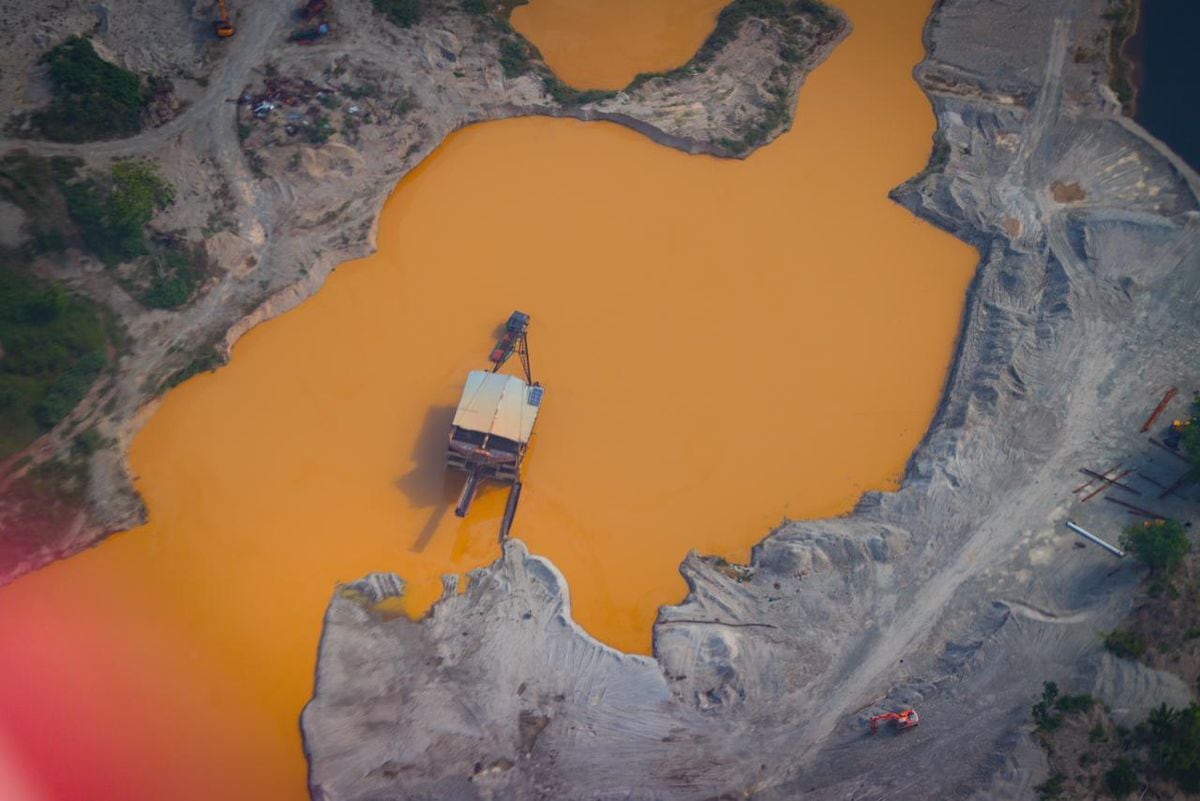
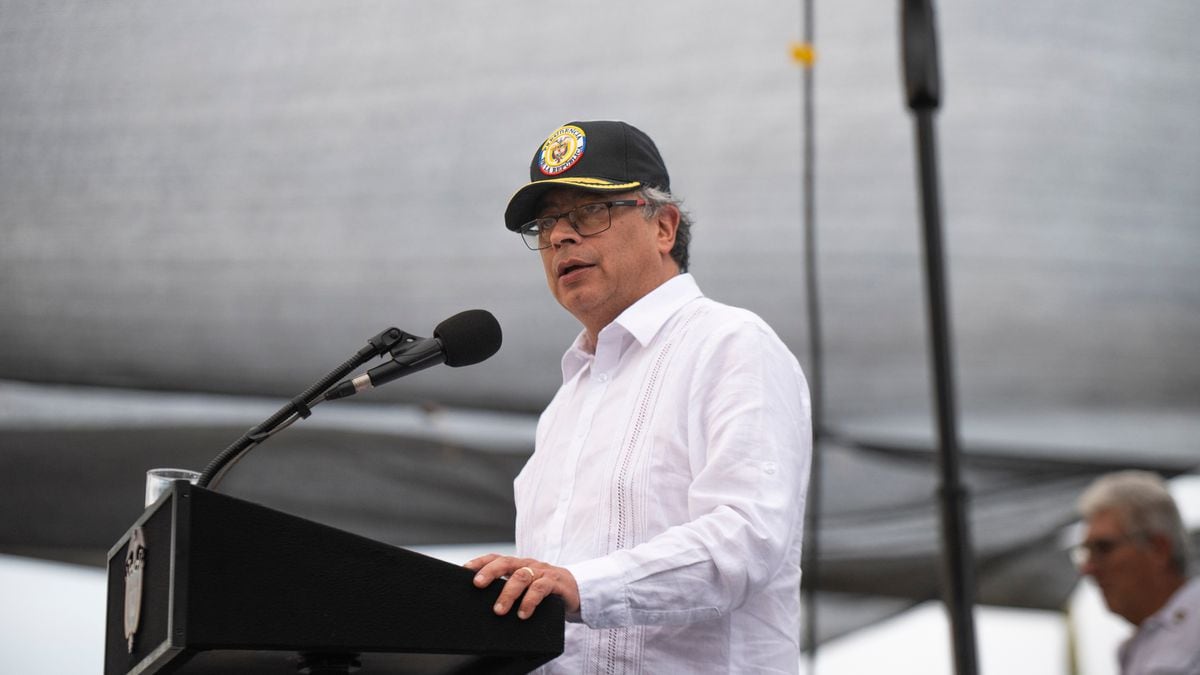
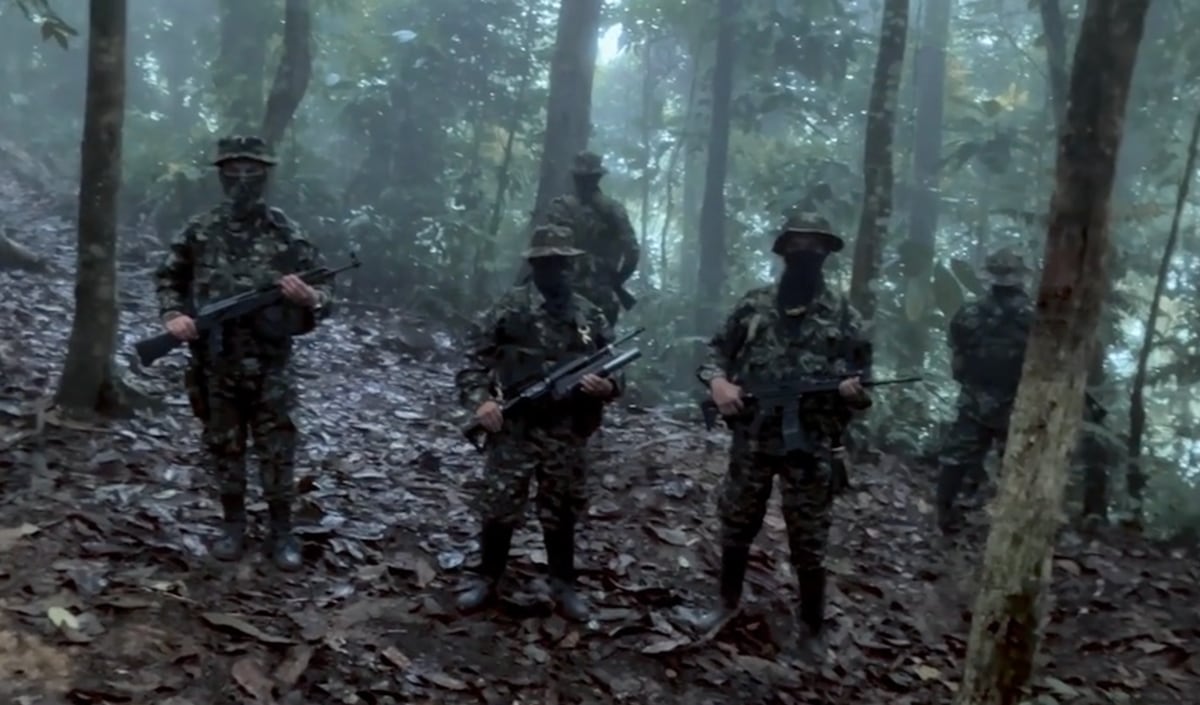
/cloudfront-eu-central-1.images.arcpublishing.com/prisa/QSB5XZRIWJDWRISSO27AUL5EKM.jpg)
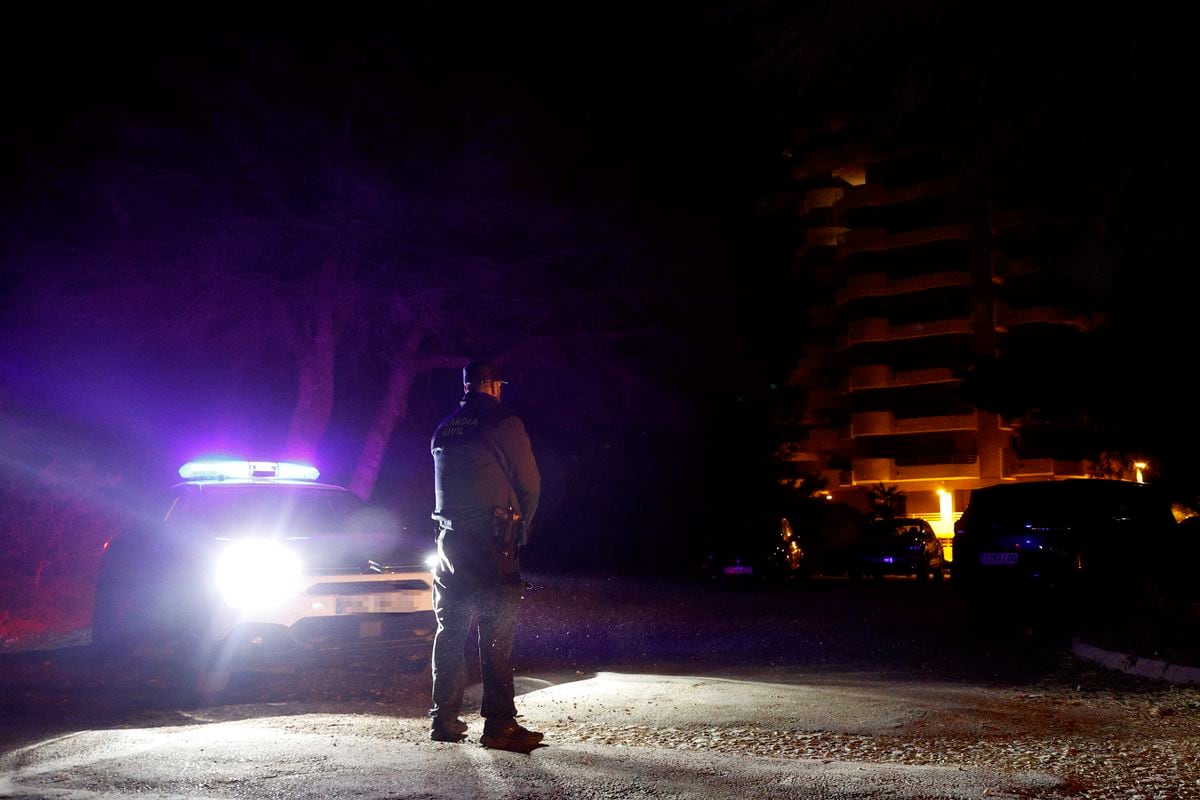
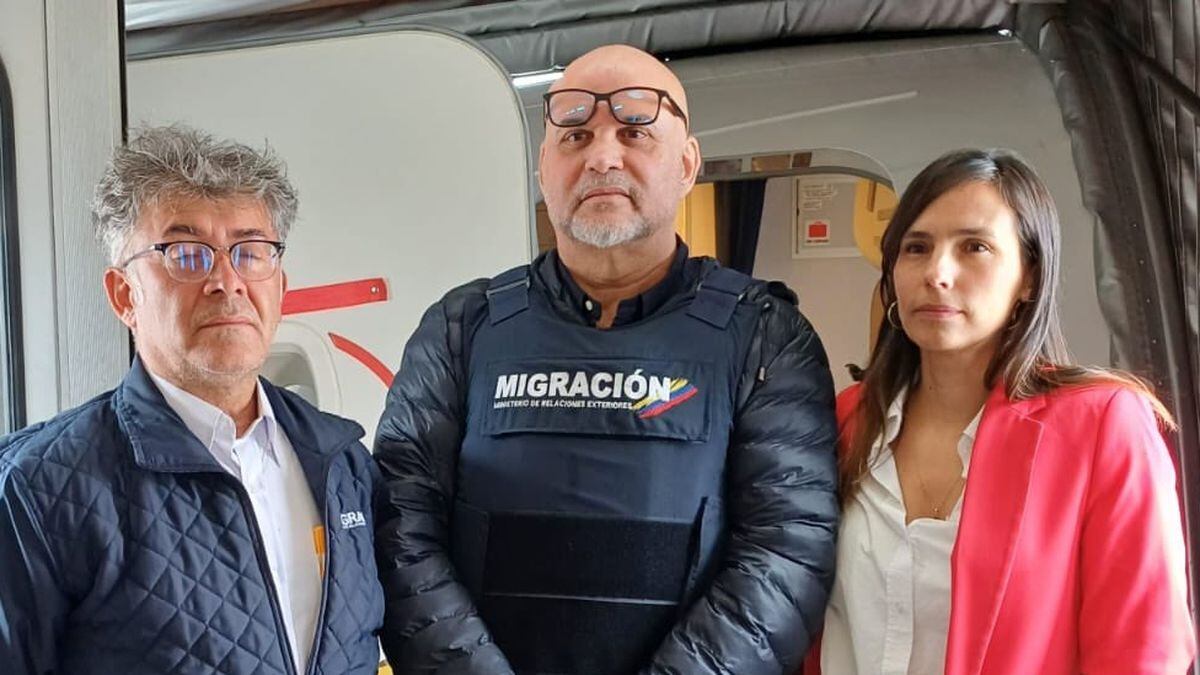
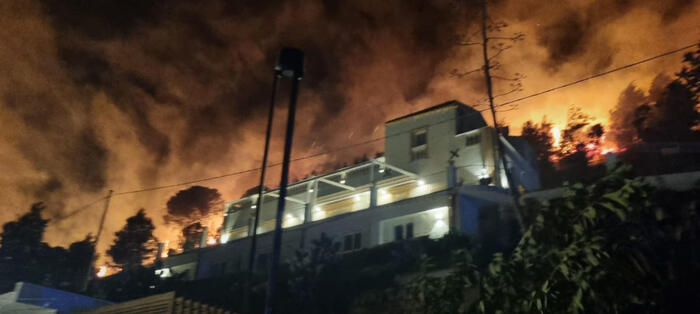

/cloudfront-eu-central-1.images.arcpublishing.com/prisa/C2F5X5KAI5GZ5BA5ZW4TEK3GFQ.jpg)





